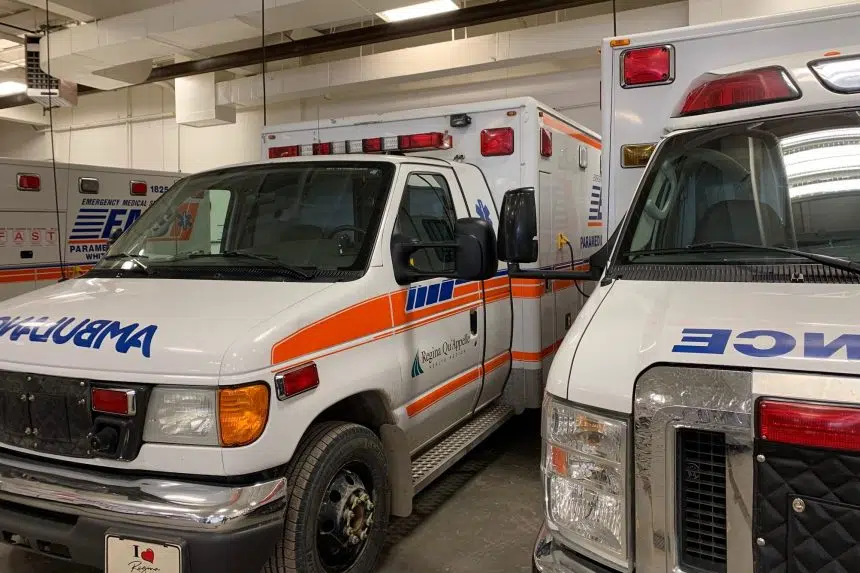First responders are on the front lines of dealing with a rash of drug overdoses in Regina.
In the first six weeks of the year, Regina police tracked 46 overdose calls believed to be linked to fentanyl. While police officers have responded to at least 29 of those calls, paramedics deal with drug overdoses consistently on the job.
Darren Tanzell has been an acute care paramedic in Regina for 20 years and has noticed a major increase in fentanyl overdoses in the last five years.
“Obviously it’s a very stressful call. Going to a drug overdose is never easy. Often it’s respiratory arrest, cardiac arrest, people are unconscious and there’s panicky family members (and) panicky bystanders. So it’s always a stressful call for us in EMS, and more and more of them are happening all the time,” Tanzell said.
When Tanzell started on the job, he said he would occasionally see morphine overdoses, but the landscape of drugs has changed a lot in the city since that time.
While opioids like fentanyl are a big problem, crystal meth poses a whole different set of challenges.
“With crystal meth, we often see rage (or) anger. People are being unreasonable so it’s difficult to talk those people down. Some of the situations we walk into in these houses obviously are not ideal either. There could be needles laying around (or) agitated family members and friends, so it’s very stressful for the paramedic,” Tanzell said.
Paramedics have also fielded calls where other drugs have been laced with fentanyl or something else.
“People think they’re maybe taking crystal meth and they’re unconscious and not breathing, where we would expect to see the exact opposite. So we know there has been drugs laced with other drugs,” Tanzell explained.
Drug overdose calls are becoming a regular challenge for all first responders but Tanzell said they are starting to better prepare for the situations they walk into.
He said paramedics talk to each other about what to expect and discuss different strategies to handle different situations. He added they are also increasingly aware of the toll of PTSD and operational stress injuries on the job and they have more supports to deal with those issues.











